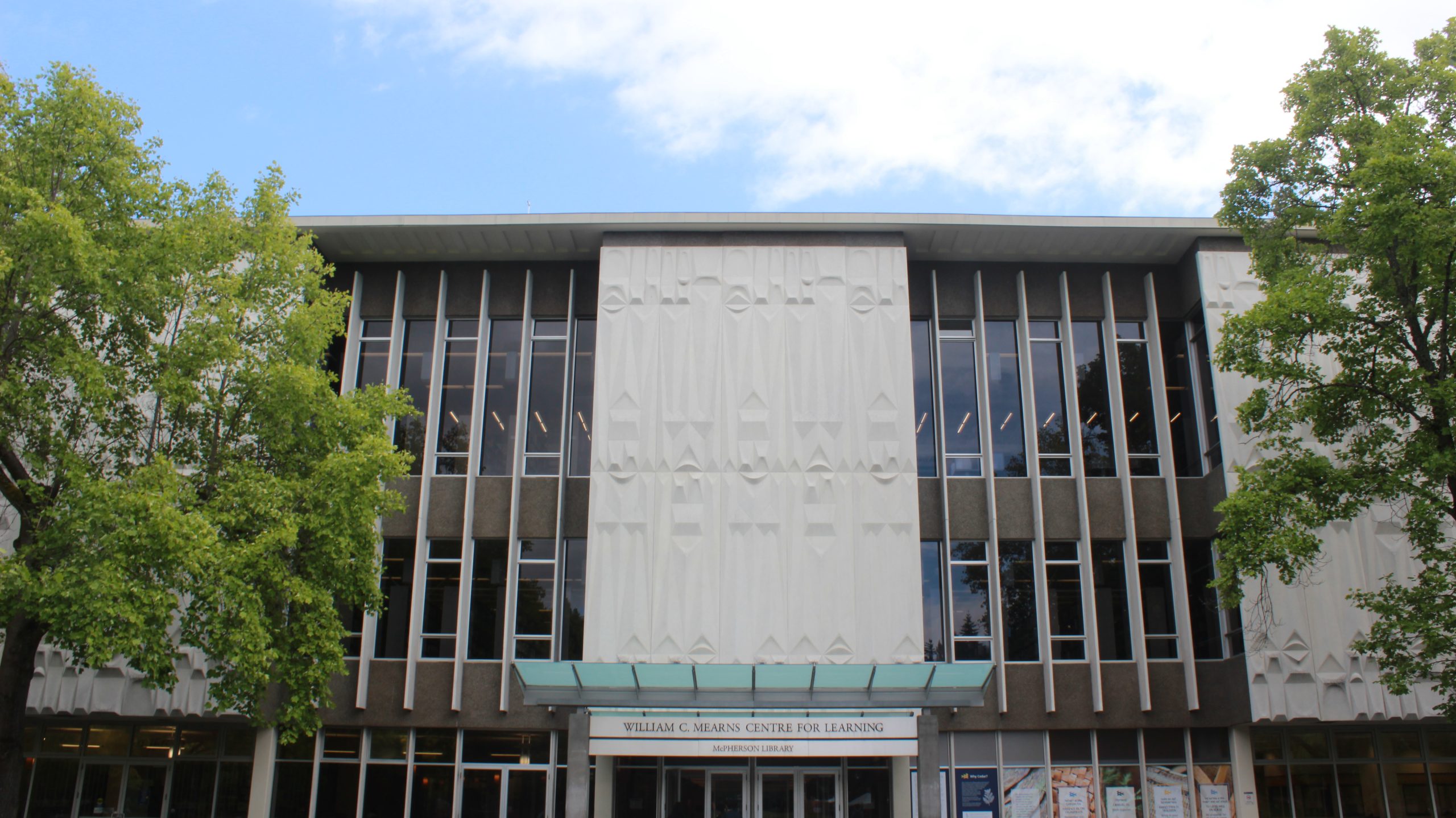Columbia, Calgary, and Alberta universities’ mismanagement of protests for Palestine sets a concerning precedent

Photo by Ethan Barkley
In response to Israel’s actions in Gaza and beyond since the attacks on October 7, university campuses across the United States and Canada have been the sites of student protests. Protesters have voiced concern and condemned Israel’s neglect of human rights in Gaza and the West Bank. These protests have come in myriad forms, ranging from rallies and walkouts to, most recently, encampments on university grounds.
These encampments, like UVic’s own People’s Park, seek to pressure university administrators to divest from companies and banks with ties to the Israeli government. Responses from university administrators have been mixed, and raise questions about the freedoms and welfare of students and faculty members.
Columbia University, in particular, has drawn negative press due to a series of blunders in responding to their own encampment. The Gaza Solidarity Encampment, one of the earliest pro-Palestine encampments on university grounds, was pitched on Columbia’s campus on April 17. The next day, NYPD officers were invited on campus by Columbia’s president, Nemat “Minouche” Shafik, to clear it. More than 100 people were arrested in the process, marking the first time Columbia called police against student protestors since the anti-Vietnam War demonstrations in 1968.
On April 30, Columbia again called the police to remove protestors from campus grounds.
While these events alone show a serious lack of care for students’ rights and safety, Columbia’s administration also faces the criticism that its actions represent major violations of academic freedom.
Academic freedom is what enables professors to conduct research and teach without external interference, like censorship or pressure from outside sources. Academic freedom also affords students the right to learn and express their views in an academic environment free from interference.
Unlike other rights and freedoms, academic freedom is not a legal right on its own. Instead, it is based on other rights, like the freedom of expression, as well as specific contractual agreements with faculty organizations. Academia is built on the open discussion of ideas and the freedom to form one’s own views based on evidence, academic freedom is an important and foundational principle to the concept of the modern university, and enables both faculty and students to pursue their studies without fear of interference or censorship.
On the same day the encampment began, Shafik testified before a U.S. congressional committee. In her testimony, she openly discussed with members of congress the employment status of specific faculty members, by name, because of comments they had made on the Israel-Palestine conflict.
Few would dispute Columbia’s right to determine who they employ, nor the right to conduct internal reviews if faculty members’ speech crosses a line. However, when such matters are discussed with elected officials, we should be concerned about whether principles of academic freedom are truly being upheld.
In the view of Columbia’s Arts and Sciences faculty, who on May 17 passed a symbolic no-confidence resolution against Shafik, these acts represent a clear violation of academic freedom. The resolution states that “President Shafik, in testimony before the House Education and Workforce Committee on April 17, promised to fire faculty, thereby violating the norms, practices, policies, and protections (based on the principle of academic freedom) upon which a university is founded.”
The resolution also condemns Shafik for twice calling in the NYPD to arrest students without the support of Columbia’s Senate, acts which it says caused a violation of the “fundamental obligations of shared governance” and an “unprecedented assault on students’ rights.”
Canadian universities, as of yet, have not had a clear “Columbia moment.” There have, however, been sufficient incidents to show that our concern is warranted. In November, the University of Ottawa suspended a faculty member over pro-Palestinian social media posts. More recently, McGill University has unsuccessfully requested multiple court injunctions to remove their encampment.
The most alarming incidents thus far have taken place at Albertan universities. City police in riot gear deployed tear gas and rubber bullets against a pro-Palestinian encampment on the University of Calgary campus on May 9, the same day the encampment was pitched. On May 11 in Edmonton, police were also called onto the University of Alberta campus and attempted to forcibly remove protestors.
These two universities now face accusations from their own faculty that they disproportionately infringed upon students’ rights to protest. Protest, like other forms of expression, is protected by the Canadian Charter of Rights and Freedoms. When students’ freedom of expression on campus is regulated by government organizations like the police, principles of academic freedom are clearly not being respected.
UVic has since stated that the encampment violates the university’s “no camping” policy, but has yet to take any direct action to remove it. Because of the risks to student safety as well as academic freedoms that clearing the encampment would pose, UVic should refrain from taking such action, even if it means not enforcing some of their policies.
Amid discussions about how UVic should respond to its own encampment, the “People’s Park,” the answer seems clear; UVic should not follow in the footsteps of the University of Calgary, University of Alberta, and Columbia. Leaving the encampment alone, so long as it remains peaceful, is the best way to ensure that students’ safety and freedoms are maintained.







